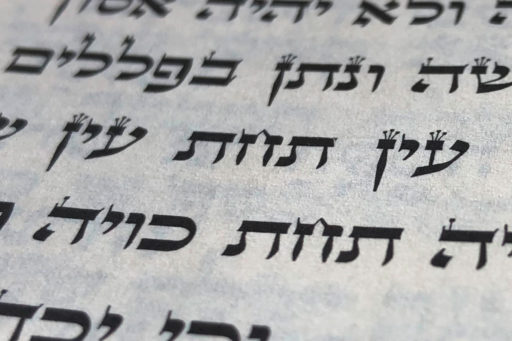“I just enjoy translating, it’s like opening one’s mouth
and hearing someone else’s voice emerge.”
― Iris Murdoch
The process of translating from one language to another is often called an art. The late Italian medievalist and novelist Umberto Eco, aware of translation’s inherent difficulties, called it, “the art of failure.” Every attempt is inexact and partial, getting some things spot on, whiffing at others. Translators are continually forced to compromise, choosing the least flawed option while rendering the original in the target language and—devotees of the King James version aside—no one translation proves definitive, once and for all. Scholars discover new insights into supposedly dead languages. Living languages change over time, adapting to new habitats and mutating in unpredictable ways.
Translating centuries-old texts, much of it written as poetry and composed under radically different social contexts, compounds the difficulty. Poetry—a genre that weds sound to sense and gains power through allusion, multiple meanings, and syntactical surprise—resists ready paraphrase even in the original language and all the more so in another. As the Irish playwright, John Millington Synge, wrote, “A translation is no translation…unless it will give you the music of a poem along with the words of it.”
Here again, difficult choices arise. I love how Robert Alter brings a poet’s eye and ear to his translation of the Hebrew Bible, complete with extensive footnotes explaining his approach in capturing that elusive music, but other scholars fault him for allegedly straying from precise meaning. It’s no use trying to please everyone. Any translation is literally idiomatic, bearing the fingerprints of a translator struggling to render old words in a modern idiom. If poetry makes an experience available to the reader rather than merely offer a denotative account of that experience, the poem must arrive in a form accessible to its readership. John Keats found George Chapman’s Elizabethan era translations of the Iliad and the Odyssey exhilarating but few readers today would trade their Fitzgerald or Fagles editions for Chapman’s four-hundred-year-old version. Of the making of many translations there is no end.
For all its challenges, translation remains an urgent and necessary art, opening strange new worlds to readers who may not have the Italian to read Dante or the Early Middle Japanese to tackle The Tale of Genji. I’m with Salman Rushdie when he writes, “It is normally supposed that something always gets lost in translation. I cling obstinately to the notion that something can also be gained.” Take, for example, Peter Cole’s magnificent anthology, The Dream of the Poem: Hebrew Poetry from Muslim and Christian Spain 950-1492. Don’t mistake the plain subtitle as a marker of dull pedantry. The lively translations here—all by Cole himself—are anything but dry grist for future dissertations in comparative literature. I’ll admit I was primed for this book, having already cultivated a fondness for the poetry of the twelfth century Ibero-Jewish virtuoso, Yehuda Halevi. In fact, it was my friend and fellow Close Reading contributor, Rick Chess, who told me some years ago, “If you like Halevi, you must read Peter Cole.” Anyone who enjoys reading the thirteenth century Persian poet and mystic popularly known as Rumi will, I think, feel similarly about Halevi, Shmuel Hanagib, or Shelomo Ibn Gabirol. Better still, Cole does not erase the Jewishness of these poets in the way recent New-Age modernizations of Jalal al-Din Muhammad Rumi blithely dispense with his Islam.
Cole is too accomplished a scholar to deliberately misrepresent the original texts (the volume’s 300 pages of poetry are followed by 200 more of footnotes and commentary) and too fine a poet to miss—as Synge warned against—the music for the words. Furthermore, Cole’s translations are skillfully wrought to resonate with the modern reader’s experience without obscuring the estranging otherness of medieval life.
Much of the early poetry in this collection was written in Hebrew in conscious imitation of Arabic verse forms. During the so-called Convivencia, the purported “Golden Age” of relative tolerance under the Umayyad Caliphate, members of the small Jewish elite in Muslim-ruled Andalusia began an outpouring of secular and religious poetry that lasted until the expulsion of Sephardic Jewry by the Christian monarchs, Ferdinand and Isabella, in 1492. How “golden” the age was remains a matter of debate. The era was far from tolerant by modern standards and remarkably short-lived as successive waves of increasingly dogmatic and brutal Muslim usurpers invaded from North Africa and equally brutal Christian forces pressed the Reconquista from the north.
Much of the poetry collected here concerns the everyday experience of Jews living in diaspora. Ibn Gabirol constructs a list poem from what observant Jews lost in the destruction of the Second Temple (70 CE) and their forced exile from Jerusalem (135 CE):
…no blood, no veil no incense or coal; no smoke, no ashes no splendor, no robes; no priest, no wilderness, no appointment by lot; no scapegoat, no cliff, no country cut off.
It’s that last line—the one without the balancing midline pause (caesura) and those two sharp “c” sounds—that hammers home the poem’s pervading sense of catastrophe. I don’t read Hebrew and can only guess what the original sounds like, but Cole’s English translation exemplifies Alexander Pope’s dictum in “On Criticism,” “The sound must seem an echo to the sense.”
Likewise in one of Halevi’s short poems written in anticipation of his long-desired (and ultimately ill-fated) pilgrimage from Spain to Jerusalem, Cole renders the opening lines:
My soul longed for the house of assembly and trembled as fear of leaving came through me; but the heavens conspired to ease my departure, and I found His name in my heart to help me.
Read aloud, I feel in my mouth the labored pulse of dense, two-syllable feet in the first two lines open suddenly into the freedom of “but the heavens conspired to ease my departure,” with its lilting three-syllable anapests.
The range of voices and subjects Cole curates is astonishing: some reaching for the distant heavens while others revel in earthy proximity. Ibn Gabirol’s “Before My Being” is a heartfelt plea and thanksgiving for God’s mercy. Moshe Ibn Ezra writes about hangovers from too much wine. Yosef Ibn Sahl laments his losing campaign against an infestation of fleas. Yosef Ibn Tzaddiq consoles a friend who, on his wedding day, could not consummate the marriage because his wife’s menstrual period began immediately after the ceremony.
Given the gendered norms of the era, it’s unsurprising that nearly all the featured poets are male. On the other hand, that some of these exquisite poems were written by military officers and high court bureaucrats beggars the imagination. And if the heady mélange of sacred and profane doesn’t surprise the modern reader, the recurring allusions to homoerotic desire may. As with any aspect of history, the more one learns, the quicker one realizes how messy the past is, how resistant to simple explanation are human affairs. Cole’s brilliant modern renderings and meticulous notes build a doorway in time, opening onto a world at once oddly familiar and distressingly alien, and in that translation, something is surely gained.
Brian Volck is a pediatrician and writer living in Baltimore. He is the author of a poetry collection, Flesh Becomes Word, and a memoir, Attending Others: A Doctor’s Education in Bodies and Words. His website is Brianvolck.com





